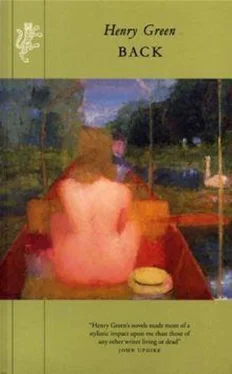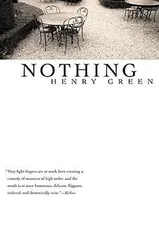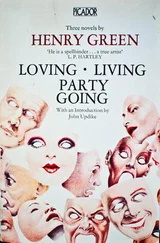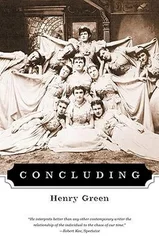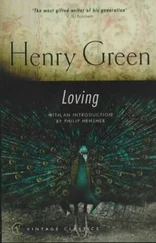“You’re looking very fit,” he said.
She misunderstood his drift.
“You don’t like talking about her, do you?” she gently asked. “Yes, it does come hard at first. You know for a long time after that happened I couldn’t bear it, I had to put the whole thing behind me or lose my reason. Then the doctors gave father some wrong counsel, and he used to keep on to make me remember. Oh, things weren’t easy for me, I’m sure.”
“I came down, d’you recollect?” he said, to get her off Rose.
“I don’t know whether I do or I don’t,” she replied, and he was horrified to find a sudden look of sly cunning begin to spread over her placid face.
“When’s the cat expecting her kittens?” he hastily enquired, proud that he’d thought of it.
She would not meet his eyes. She began looking sideways. Then he was shocked to see that she was covering her mouth with a hand.
“Asking me a lot of questions,” she mumbled.
At that moment Nance came back. She took all this in, at a glance. “He only wanted his bed made more comfortable,” she announced, in a cheerful tone of voice. “Now he’s dozed off into such a nice sleep. And mother, I really do believe you should lie down for a moment, if you’re to sit up with him later.”
“Yes dear,” the older woman agreed. She went out on Nancy’s arm, without saying goodbye to Charley.
“Don’t you go,” Nancy said over her shoulder, in what he took to be a menacing voice, “I’ll have something to say to you, later.”
He sat on, feeling guilty.
When she came back she asked, “Now what have you been saying to her?” but, from the tone she used, she did not seem to be put out. Indeed she appeared to take everything about this house in her stride, and, at the same time, to pump life into it.
“Me? Nothing,” he said.
“You’ve been on about your Rose, I’ll be bound,” she told him, and seemed disinterested. “That’s always liable to bring back one of mother’s turns. And Rose can still do the same with you, you know she can.”
“She can’t,” he protested.
“Tell that to the Japs,” she replied.
“Which is an Arthur Middlewitch expression,” he said, with resentment.
“And why not?” she asked.
“Only that Mrs Grant says, now, you want to find him a job.”
“Don’t let’s argue,” she answered, still quite calm and friendly. “Art’s all right. He’s no more than another lame dog the wrong side of a stile. No, I wasn’t questioning your turning the conversation onto the daughter. It was people’s hearts I blamed, which lead them to do hurt to themselves. I know. I’ve had some.”
“You mean your husband?” he brought out, daring, and as though he had made a wicked discovery. There was a pause. He was careful not to look at her.
“Well, what did your Rose mean to you?” she began, rather wild. “Was she a part of you? Did you wake with her in the morning? Did you know what was in her mind when she was a thousand miles overseas. Oh Phil,” she said, and could not go on.
He felt an absolute criminal.
“Now what’s this?” he weakly protested.
“I’m sorry,” she replied, pulling herself together. “It wasn’t your fault. I started it,” she said. “Tell you what, let’s get out of here for a few minutes. Everyone’s been on edge in this house, lately.”
“What about your work?”
“I’m off on Saturday nights, didn’t you know?”
“But can she manage? I mean, will it be all right?”
“Yes, you needn’t fuss,” she said. “The moment mother hears that bell he has, she’s round his bed, day or night. There’s not much she lets me do, really. It’s everything for her, his being like he is.”
“Are you certain?”
“Oh well, if you don’t want to come. I was only thinking I couldn’t stand this another moment, if I didn’t get a breath of air.”
“If you say it’s O.K.,” he said. It seemed heartless that Mrs Grant should be left alone with the sick man, just when she had been taken up to rest. But he humbly realized he knew very little. And this is just what she proceeded to tell him.
“Don’t look at me with that expression on your face,” she said, very friendly. “You can’t understand about her, never will I expect. Now, don’t go and forget we’re off for a stroll in less than five minutes. It would be like you,” she called back to him, as she went to put on her shoes.
“Where shall we go?” she asked, when they got outside.
“Wherever you like,” he offered.
“I don’t know this part,” she pointed out. “Lord, aren’t there any Lovers’ Lanes round here, or anything?”
He laughed. “I wouldn’t know,” he said.
“Oh yes you would, dear. Take me where you used to take her, then.”
He laughed again. “You’d have to dye your hair,” he said.
She wasn’t going to have that.
“Here, who d’you take me for?” she demanded. “It’s disgusting, that is.”
“I’m sure I didn’t.…”
“Oh yes you did, or you wouldn’t have said. Now where? Left or right?”
“This way,” he answered, and she put her arm through his as they set off.
“You aren’t leading me to one of those kid’s places, six trees and a bit of railing, where they lie up of an evening?”
He risked a lot. “Wait and see,” he told her. It was all right, because she laughed.
Rain had been pouring down all summer, with the result that this October was the hottest in years. It was a red sunset for them, but, even so, too cold to sit out. There was no wind, everything was quite still. They walked at a smart pace, in silence, and in five minutes were leaving the cheaper estate, on which Mr Grant had bought his own residence, for a road which ran through wide gardens with expensive houses, one or two of which were blitzed.
Autumn was the season, most roses were dead. Petals that had dropped some months back and rotted, traces of a summer now gone, were covered by the brown leaves which even in this still air rocked down to lie deep on the ground as they walked, so that their feet rustled. Where a flying bomb had dropped recently, the drift of leaves was still green underfoot, the trees bare as deep winter. Then, just as they were passing this spot, the syrens set up a broken wailing.
“Come on,” he said, turning off the road into the garden of a house in ruins.
“Why, surely you never took her here?” she asked, for the place could only have been blitzed a few days.
He laughed.
“Or are you nervous?” she wanted to know.
“Not of them,” he answered.
“Why not?” she demanded, as they skirted what was still standing, against the untouched chimney a lone staircase which descended from nothing to the leaf-covered drive, the steps blotched with a dust of plaster, and all of it turned a great red by the setting sun, her face as red as his own. “Why not?” she repeated.
“Don’t know,” he answered, hurrying her along.
“Where are we going?” she asked, and seemed content. He knew no more than she. But when they got round the red garage, which was intact, and a privet hedge, which, in this light, and because it was shaded, burned a dark glowing violet, they found what had been the rose garden, enclosed with a low brick wall, and then they had before them, the outlines edged in red, stunted, seemingly withered, rose trees which had survived the blast as though it had never happened, and, for a screen at the back, a single line of dwarf cypresses, five feet high with brown trailing leafless briars looped from one to the other, from one black green foliage to its twin as green and black, briars that had borne gay rose, after rose, after wild rose, to sway under summer rain, to spatter the held drops, to touch a forehead, perhaps to wet the brown eyes of someone idly searching these cypresses for an abandoned nest whence fledglings, for they go before the coming of a rose, had long been gone, long ago now had flown.
Читать дальше
